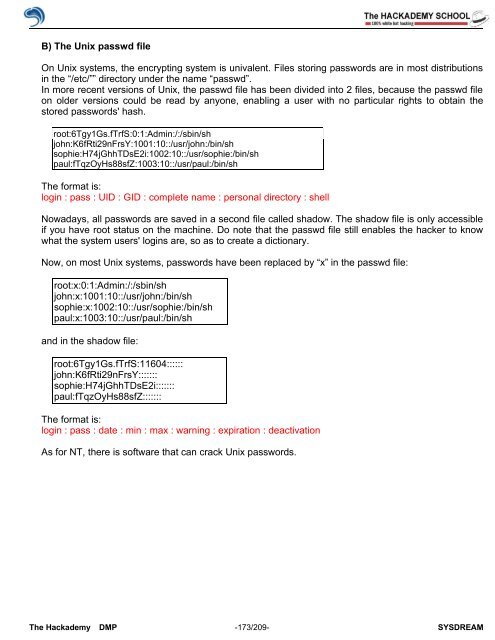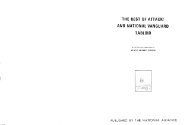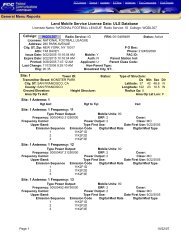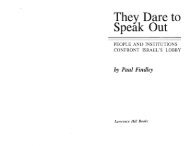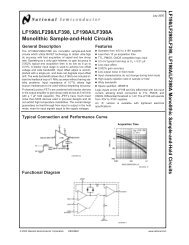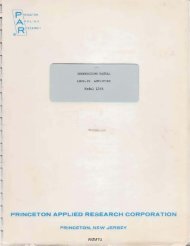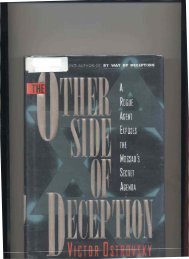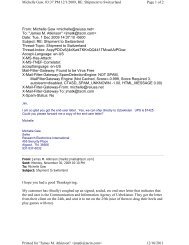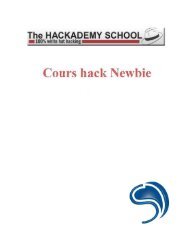Create successful ePaper yourself
Turn your PDF publications into a flip-book with our unique Google optimized e-Paper software.
B) The Unix passwd file<br />
On Unix systems, the encrypting system is univalent. Files storing passwords are in most distributions<br />
in the “/etc/”” directory under the name “passwd”.<br />
In more recent versions <strong>of</strong> Unix, the passwd file has been divided into 2 files, because the passwd file<br />
on older versions could be read by anyone, enabling a user with no particular rights to obtain the<br />
stored passwords' hash.<br />
root:6Tgy1Gs.fTrfS:0:1:Admin:/:/sbin/sh<br />
john:K6fRti29nFrsY:1001:10::/usr/john:/bin/sh<br />
sophie:H74jGhhTDsE2i:1002:10::/usr/sophie:/bin/sh<br />
paul:fTqzOyHs88sfZ:1003:10::/usr/paul:/bin/sh<br />
The format is:<br />
login : pass : UID : GID : complete name : personal directory : shell<br />
Nowadays, all passwords are saved in a second file called shadow. The shadow file is only accessible<br />
if you have root status on the machine. Do note that the passwd file still enables the hacker to know<br />
what the system users' logins are, so as to create a dictionary.<br />
Now, on most Unix systems, passwords have been replaced by “x” in the passwd file:<br />
root:x:0:1:Admin:/:/sbin/sh<br />
john:x:1001:10::/usr/john:/bin/sh<br />
sophie:x:1002:10::/usr/sophie:/bin/sh<br />
paul:x:1003:10::/usr/paul:/bin/sh<br />
and in the shadow file:<br />
root:6Tgy1Gs.fTrfS:11604::::::<br />
john:K6fRti29nFrsY:::::::<br />
sophie:H74jGhhTDsE2i:::::::<br />
paul:fTqzOyHs88sfZ:::::::<br />
The format is:<br />
login : pass : date : min : max : warning : expiration : deactivation<br />
As for NT, there is s<strong>of</strong>tware that can crack Unix passwords.<br />
The <strong>Hack</strong>ademy DMP -173/209- SYSDREAM


